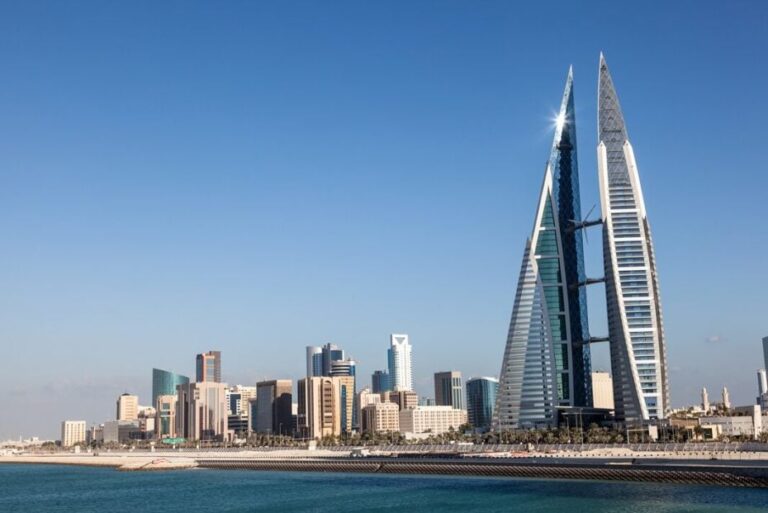S&P Global Ratings has affirmed Bahrain’s ‘B+/B’ long- and short-term foreign and local currency sovereign credit ratings, maintaining a stable outlook as of May 26, 2024. This affirmation underscores confidence in Bahrain’s ongoing fiscal reforms and support from Gulf Cooperation Council (GCC) allies, despite the nation’s economic challenges.
Economic and Fiscal Overview
The ratings agency acknowledged Bahrain’s continued efforts towards fiscal consolidation, projecting fiscal deficits to average 4.4% of GDP over 2024-2027, compared to 3.8% in the previous review. Despite a sharp widening of the deficit in 2023 due to higher interest rates, a one-off social support program, and pensioners’ allowance adjustments, Bahrain is expected to consolidate its fiscal position through 2027.
Oil Production and Revenue
The decline in oil production, attributed to maintenance at the Abu Safa oil field, impacts revenue assumptions. Nonetheless, the government aims to enhance its non-oil revenue base through continued fiscal and structural reforms.
GCC Support
Bahrain anticipates receiving the remaining $2.8 billion of the $10.2 billion support package pledged by Saudi Arabia, the UAE, and Kuwait in 2018. There is also potential for additional financial support beyond the program’s expiration at the end of 2024. Historically, these interest-free loans have covered about 50% of Bahrain’s gross external financing needs.
Debt Management
Currently, Bahrain faces external debt redemptions of approximately $2 billion to $2.5 billion, accounting for 5% of its annual GDP. In February 2024, Bahrain successfully raised $2 billion through the issuance of a seven-year bond and a 12-year conventional bond, both receiving strong investor demand.
Economic Outlook
The Bahraini government is implementing a multiyear economic recovery plan with over $30 billion in strategic investments to boost growth outside the oil sector. Measures have been put in place to increase non-oil revenues and contain expenditures. Continued support from the GCC is expected, increasingly in the form of investments rather than direct government aid.
Bahrain benefits from its proximity to Saudi Arabia, robust regulatory oversight of the financial sector, a relatively well-educated workforce, and a lower-cost environment compared to other GCC countries. However, GDP per capita growth remains largely flat when adjusted for population levels, suggesting labor supply, rather than productivity, drives growth.
Conclusion
S&P’s affirmation of Bahrain’s credit ratings and stable outlook highlights the country’s commitment to fiscal reforms and the critical support from GCC allies. Despite ongoing economic challenges, particularly in the oil sector, strategic investments and fiscal measures are expected to support Bahrain’s economic stability and growth prospects through 2027.
Image Credit: Sourced from EBD Bahrain
Stay Updated:
For more updates follow the Finance World on Instagram, LinkedIn, and YouTube.


